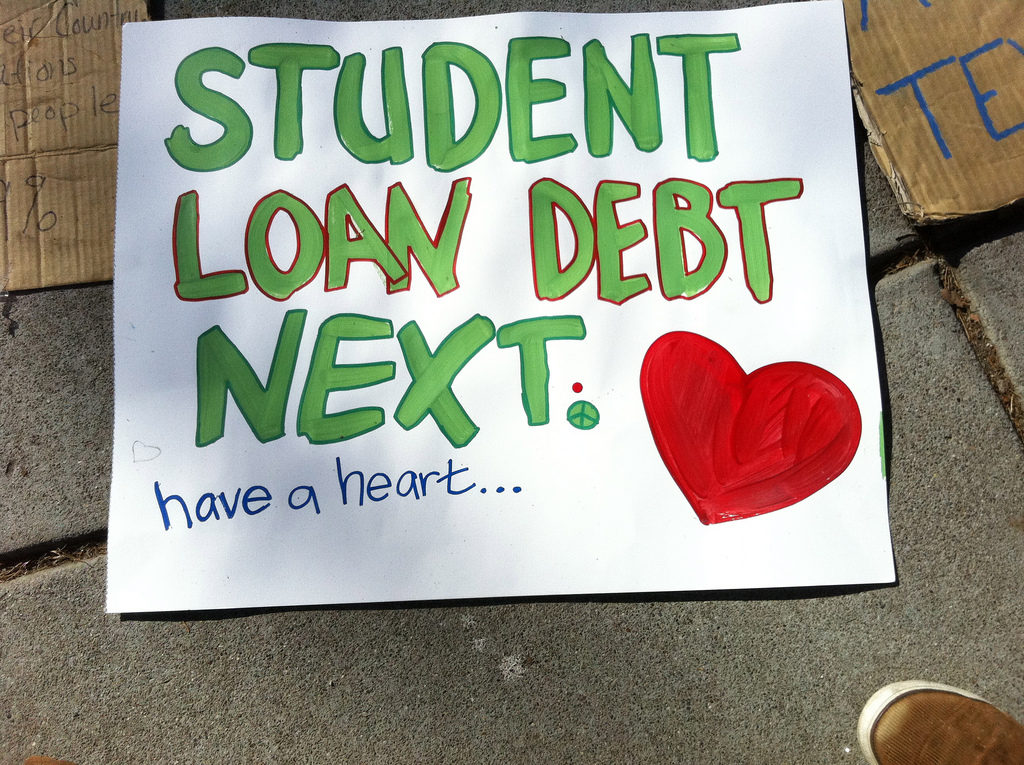Over $33 billion in student loan debt is held by nearly one million Virginians, causing crippling effects not only on a personal financial level, but a state governmental level as well.
As the national student loan debt climbs above $1.3 trillion, it has surpassed that of credit card debt for the first time. There have been attempts by state governments over the past few years to mitigate the consequences for student loan borrowers and their inability to pay back loans. According to the Potomac Local, Virginia lawmakers are now looking to lessen the economic consequences of loan default on students by creating a state ombudsman to educate student loan borrowers and complete research to provide solutions for the loan crisis.
Virginia is the second area in the U.S. to follow suit in troubleshooting student loan problems with legislation. Last year, Washington D.C. established a Borrower’s Bill of Rights and a student loan ombudsman to investigate individual complaints against loan providers and ecducate borrowers on their rights and responsibilities. Earlier this week, both the House of Delegates and Senate passed legislation to establish the Office of the Qualified Education Loan Ombudsman and a similar Borrower’s Bill of Rights.
House Bill 1138, introduced by Delegate Marcia Price (D-Newport News), establishes the Office of the Qualified Education Loan Ombudsman, which cleared House after a 94-5 vote. “Too many student borrowers sign their names on the dotted line at only 18 or 19 years old without fully comprehending their rights and responsibilities associated with that debt, but also knowing that without those loans they would not be able to earn their degrees,” Delegate Price said.
Senate Bill 394, put forth by Senator Janet Howell (D-Reston), would make it an adminstrative task to assist student loan borrowers in understanding their rights and responsibilities under the terms of qualified student loans. Furthermore, the Office would receive, review, and resolve complaints from qualified education loan borrowers.
The measure passed unanimously. The bills are new efforts to increase transparency in student loan borrowing in Virginia.
Supporters of the measures state the ombudsman would assist potential students in obtaining loans, but also educate them on how to pay them off without accruing numerous late fees and eventually falling into default. They are hoping to establish a line of open communication between loan providers and borrowers.
The state ombudsman would develop a course of action by December 2019 to be implemented. Borrowers, half of whom are under age 25, would be kept abreast of student loan legislation, matters from financial institutions regarding borrowing, and federal regulations on financing higher education.
The Virginia Senate also crafted legislation on the loan provider side of the issue. Senate Bill 362, which was also unianimously approved, will require billing companies of student loan borrowers to be licensed by the State Corporation Commission (SCC). The bill was introduced by Senator Howell as well.
In an attempt to resolve the monumental student loan debt crisis, Delegate Price also sponsored House Bill 615. The bill would provide financial relief those who are not eligible under normal applicable federal student loan repayment or loan forgiveness programs. However, the measure was voted down 5-3 on a party line basis in a House Appropriations subcommittee.
The bachelor’s degree has become the new high school degree. In essence, those who graduate from a four-year institution are not seen as “special” as they once were in decades passed. Students are not smothered with jobs and careers after graduating college as they once were. Moreover, there is an overwhelming amount of those who hold a bachelor’s degree that are either unemployed or under-employed.
While educating student loan borrowers on being financially responsible is a great idea, the fact is that those who graduate from college need gainful employment. The private sector can also be involved in helping out the situation.
In response to this, Delegate Margaret Ransone (R-King George) offered House Bill 685. The legislation would establish the Cybersecurity Student Loan Repayment Grant Program in effort to provide a private sector solution.
The State Council of Higher Education for Virginia would give renewable grants of up to $20,000 of matching state and employer funds that are provided to an individual who graduated within the past year. The recipient would need to have come from a public institution of higher education or regionally-accredited private institution of higher education and have obtained an undergraduate or graduate degree in computer science or another academic program recognized by the Council to prepare a student for a career in cybersecurity.
Those eligible under the program would also include members of the armed forces who were honorably discharged within the last year who gained experience or received training in computer science during their service. As well, any Virginians who accept an offer of employment in a computer science position with any federal or state organization, or a private organization that provides cybersecurity services would benefit.
As a state that is becoming a hub for cybersecurity and Internet-based jobs, Virginia can become a large holder in that market. By helping to bolster private enterprise with degree-holding students, Virginia lawmakers may be able to help solve the student loan crisis by fostering public-private partnerships.

